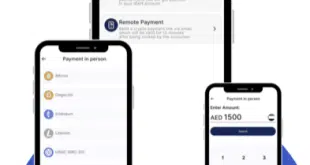After panicking when Bitcoin surged, central banks reconsidered the new technology of money and ostensibly figured out how to fashion it into the most powerful population-control tool ever— a means for fine-tuned surveillance of subjects and citizens alike, and a weapon to monitor people and steer them according to their government’s wishes. A new era of population control loomed. Right?
Not so fast. The same technology that could give enormous power to governments will also empower non-government entities to mint coins and run an economy that can’t be controlled by government.
Bitcoin has proved that a global currency needs only public trust to run on. Bitcoin runs on empty and keeps running, cutting through all the fiat currencies in the world. Trust in an algorithm does not shield that algorithm from a better mathematician developing a cracking algorithm. But it does shield it from the law—you can’t sue an algorithm.
Trust, as we see today, is shifting to digital coins minted by an entity that is fearful of the court. The new digital coins are backed by a universal commodity, or, better yet, a basket of traded commodities, where the trading is carried out by a mint that builds its trust through day-to-day trading. All that is needed for a digital currency to trade is the trust that the currency issuer is ready to redeem its coins for their purchase value, any time, anywhere.
For a digital currency to operate, no disruption of privacy is required. Naturally, people will be attracted to mints that safeguard the privacy of traders. These mints will develop more public trust the more they trade and observe their customers’ expectations for ultimate privacy. That trust will attract more traders, and on it goes. Mints that deploy trade protocols that ensure smooth trading while safeguarding traders’ privacy would be unstoppable. They would extend beyond national borders and erode the domain of fiat currencies.
By instinct, governments will fight back with regulations and limitations. They might be successful, but most likely not. Digital currency can trade under robust encryption safe from government’s tentacles. The wholesome response from government is to abandon their plan to use digital currency as the ultimate surveillance tool, and instead adopt a national digital currency that upholds privacy and allows people to pay without exposing the identity of the payor.
The LeVeL digital currency by BitMint is an example of a quantum-safe digital currency that shifts the security burden to the trader. The more the LeVeL coin trades, the greater the cryptanalytic burden facing any hacker. For security, a trader will pass the LeVeL coin to himself often enough to stay ahead of any quantum computer and safeguard his or her privacy.
Such privacy-honoring national currencies will allow the authorities to obtain a court order to investigate suspicious transactions. This balance between privacy and law enforcement will resemble the search-and-seizure balance in the U.S. Constitution—a high barrier for the government.
Alternatively, the government will get out of digital money altogether and allow private entities to offer digital claim checks for the nominal fiat currency. Those private entities will comply with a public-protective regulatory regime and compete for the public’s business.
One way or another, the availability of privacy-preserving digital money will prevent most countries from using the new technology as a high-powered public-surveillance tool. I stress, however, that this is how it looks right now. Alas, the idea of non-material money is so young and so given to innovation that the future may look nothing like what anyone imagines right now.
—Gideon Samid gideon@bitmint.com




